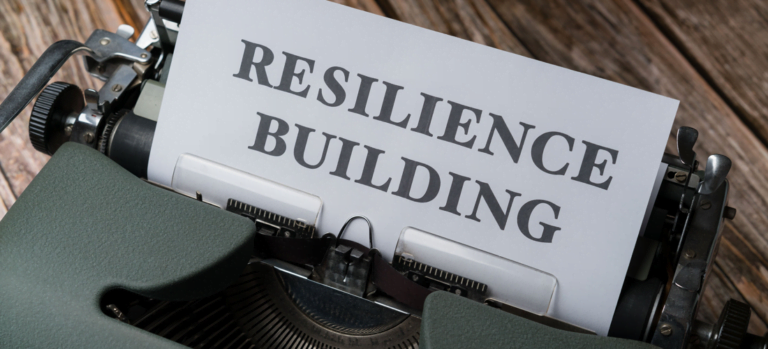Emotional Intelligence, often abbreviated as EI, refers to an individual’s ability to perceive, understand, and manage their own emotions and those of others. It plays a crucial role in fostering interpersonal relationships, enhancing empathy, and improving decision-making processes. Interestingly, solitude proves to be a potent tool for enhancing emotional intelligence. In this exploration of solitude and emotional intelligence, we’ll look into how immersion in solitude allows individuals to engage in introspection, understand their emotional responses, and develop healthier ways to react to emotional stimuli. It offers an undisturbed space to process emotions, thereby fostering emotional growth and deepening understanding of oneself and others.
Building Self-Awareness
Spending time alone allows us to delve deeper into our emotional reservoir. This reflective process in solitude often uncovers personal emotions and triggers which we might overlook in the hustle and bustle of daily life. In the silence and peace of solitude, we can examine these emotions and triggers without external pressure or influence, providing an opportunity to better understand our emotional patterns.
We can identify which situations or individuals elicit strong emotional responses and why. This identification and understanding is the cornerstone of emotional intelligence, as it empowers us to navigate our emotions effectively and build healthier responses. It’s through this solitary reflection that we can enhance our emotional intelligence, improving not only our relationship with ourselves but also our interactions with others.
Journaling as a Practice for Self-Reflection
Journaling is a powerful practice for self-reflection, serving as a tangible outlet to articulate thoughts, feelings, and emotions. In the privacy of a journal, one can explore their deepest thoughts without fear of judgment or criticism, thereby promoting uninhibited emotional honesty.
This written self-exploration in solitude provides the opportunity to closely examine personal emotional responses, dissect complex emotions, and recognize recurring emotional patterns. Thoughts and emotions that may seem overwhelming or confusing become more understandable when transcribed into words.
Journaling facilitates greater self-awareness, allowing us to introspectively dissect our emotions, identify triggers, and understand our emotional reactions better. This deeper understanding of self, achieved through the introspective solitude of journaling, is essential to nurturing emotional intelligence.
By giving us the tools to understand and manage our emotions, journaling ultimately strengthens our emotional intelligence, thus augmenting our ability to empathize and interact effectively with others.
Utilizing Meditation and Mindfulness Exercises
Meditation and mindfulness exercises are invaluable tools for developing emotional intelligence in solitude. These practices focus on the cultivation of self-awareness, allowing individuals to gain insights into their emotional landscape. A regular meditation practice can help us pause and reflect upon our emotional responses, rather than reacting impulsively, thereby fostering emotional regulation, a key facet of emotional intelligence.
Mindfulness, on the other hand, encourages a non-judgmental awareness of the present moment. Whether it’s acknowledging an emotion, a thought, or a physical sensation, mindfulness promotes a deliberate and conscious recognition of our internal state. This heightened self-awareness is foundational to emotional intelligence, as it enables us to identify and label our emotions accurately, promoting healthier emotional processing.
In addition, meditation and mindfulness exercises can be practiced in solitude, providing a serene and distraction-free environment to introspect and tune into our emotional world. In this solitary space, we can confront our emotions head-on, learn to sit with them without seeking external distractions, and gradually cultivate a healthier relationship with our emotions.
Enhancing Self-Regulation
Recognizing and Managing Emotional Reactions
Recognizing and managing emotional reactions is a critical component in the development of emotional intelligence, especially in solitude. This process starts with self-awareness. By frequently engaging with our emotions in solitude, we become adept at identifying our feelings as they emerge. We learn to recognize emotional triggers and comprehend the underlying causes of our reactions. This understanding is vital in managing our emotional responses effectively.
Comprehending our emotional reactions does not imply suppressing or ignoring emotions; instead, it means accepting them as they are and treating them as informed guides rather than definitive directives. This acceptance is a significant step in self-regulation, as it liberates us from being controlled by our emotions.
In solitude, we can practice techniques such as deep breathing, mindfulness, or journaling to navigate intense emotions. By doing so, we learn to respond rather than react to our feelings, thereby fostering emotional agility. And due to this, we develop a balanced relationship with our emotions, allowing us to engage constructively with others and ourselves. This balanced emotional approach is the epitome of emotional intelligence and can be significantly enhanced through periods of intentional solitude.
Developing Impulse Control through Solitude
Developing impulse control is another crucial aspect of emotional intelligence that can be nurtured in solitude. Impulse control refers to our ability to resist or delay an impulse, drive, or temptation to act. It plays a fundamental role in self-regulation, helping us to avoid hasty decisions or actions driven by intense emotions.
Solitude provides an ideal setting for introspection and for practicing impulse control. In the quiet and calm of solitude, we can reflect on past instances where impulsive reactions led to undesirable outcomes. We can then strategize how to better handle similar situations in the future. Techniques such as meditation, mindfulness, and cognitive reframing can be practiced in solitude to strengthen our impulse control capabilities.
Over time, regular practice can increase our emotional resilience, leading to improved emotional intelligence. These techniques not only help us understand and manage our emotions but also empower us to respond to emotional triggers in a more considered and effective manner.
Strategies for Handling Stress and Pressure in Isolation
Stress and pressure are common experiences in solitude, particularly when used as a tool for developing emotional intelligence. However, there are several strategies that can be employed to manage these feelings effectively.
- Mindfulness and Meditation: One of the most powerful tools for managing stress in solitude is mindfulness and meditation. These practices allow us to focus our attention on the present moment, accepting it without judgment. This can help to reduce feelings of stress and anxiety, promote relaxation, and improve emotional intelligence.
- Physical Activity: Engaging in regular physical activity can also be a highly effective strategy for managing stress. Exercise releases endorphins, the body’s natural mood elevators, and can provide a healthy distraction from stressful thoughts.
- Journaling: Writing down thoughts and feelings can be a therapeutic way to handle stress and pressure. It provides an outlet for expressing emotions, allowing us to gain insights into our feelings and reactions. This self-awareness is a key component of emotional intelligence.
- Virtual Social Connections: Even in solitude, maintaining social connections is vital. Regular contact with friends and family via phone calls, video chats, or social media can provide emotional support and reduce feelings of isolation.
- Healthy Eating and Sleeping Habits: Proper nutrition and sufficient sleep are fundamental to maintaining emotional and physical health. A balanced diet and regular sleep schedule can improve mood, energy levels, and resilience to stress.
By incorporating these strategies into our solitude, we can not only manage stress and pressure effectively but also enhance our emotional intelligence. It’s important to remember that each person is unique, and strategies should be tailored to individual preferences and circumstances for optimal results.
Improving Empathy
Practicing Active Listening During Moments of Solitude
Practicing active listening during moments of solitude can significantly contribute to the development of emotional intelligence. It involves fully immersing oneself in the words, emotions, and perspective of another person, even without their physical presence. By doing this, we can gain a better understanding of others’ emotions and viewpoints, a crucial component of emotional intelligence.
During solitude, we can replay past conversations in our minds, dissecting different aspects of the dialogue and gauging the emotional undertones. This practice not only fosters empathy but also improves our communication skills, as we become more aware of subtle emotions conveyed through tone and non-verbal cues. It’s a beneficial exercise that enhances our emotional intelligence, making us more empathetic and effective communicators.
Fostering a Deeper Understanding of Others’ Perspectives
Fostering a deeper understanding of others’ perspectives is a significant part of developing emotional intelligence during solitude. By spending time alone, we can reflect on our interactions with others and consider their viewpoints without interruption. This involves attempting to see the world through their eyes and understand their motivations, fears, and desires.
To do this, one could recall past interactions or disputes, then try to understand the other person’s standpoint, emotions, and intentions. This reflective practice can help reveal biases, assumptions, and blind spots in our understanding, paving the way for more empathetic and nuanced interactions in the future. Such solitary reflection can be a powerful tool in advancing our emotional intelligence, leading to improved relationships and better conflict resolution.
Cultivating Compassion through Self-Compassion Exercises
Self-compassion exercises are potent tools for cultivating compassion and enhancing emotional intelligence during periods of solitude. These exercises encourage us to turn understanding and empathy inward, and by doing so, we learn to be kinder to ourselves, acknowledge our flaws without judgment, and understand our emotional responses better. This increased self-awareness allows us to better comprehend and regulate our emotions, an essential component of emotional intelligence.
One such exercise involves mindful breathing, where we focus on our breath, enabling us to be present in the moment and accept our feelings and thoughts as they come and go without judgment. Another self-compassion exercise is self-kindness, wherein we actively counteract negative self-talk with positive affirmations, helping us to manage and reduce feelings of self-doubt or inadequacy.
Practicing these exercises in solitude allows for genuine self-reflection, devoid of external distractions. As we become more compassionate towards ourselves, we naturally extend this compassion to others, fostering an enhanced understanding of their emotions and perspectives – a key aspect of emotional intelligence.
Mastering Social Skills
Virtual Role-Playing for Social Interactions
Virtual role-playing for social interactions presents an opportunity to enhance emotional intelligence during solitude. This method involves simulating social scenarios in a virtual environment, providing a safe space to practice and master social skills. As these simulations mirror real-life interactions, they help us to understand and navigate various social situations better. These might range from handling a difficult conversation, dealing with emotional conflict, or expressing empathy and understanding towards others.
During solitude, engaging in virtual role-playing allows us to reflect on our responses and emotional reactions without the fear of judgment. It offers the opportunity to pause, reassess, and alter our approach as needed, boosting our emotional comprehension and regulation. Plus, it provides a platform to practice empathy, a crucial aspect of emotional intelligence, by allowing us to step into the shoes of other characters.
This deepens our understanding of diverse emotions, perspectives, and reactions, which can then be applied to real-world interactions. Therefore, virtual role-play serves as an effective tool for improving emotional intelligence in solitude, fostering our ability to communicate, empathize, and connect with others more effectively.
Analyzing Past Social Experiences for Improvement
Reflecting on past social experiences is a significant aspect of enhancing emotional intelligence in solitude. By revisiting previous social interactions, we can gain insight into our emotional responses, reactions, and behaviors. We can identify patterns and tendencies in our communication, as well as highlight areas where we responded positively or negatively. Through this reflective process, we can recognize emotional triggers and learn better ways to manage our responses to them.
Additionally, analyzing past experiences provides a foundation for personal growth. It helps in understanding how our emotions influence our actions and how these actions impact others. This understanding paves the way for a more empathetic approach to social interactions, enhancing our emotional intelligence.
Furthermore, solitude gives us the space to be honest with ourselves. It allows us to confront and accept our shortcomings, which is the first step in personal development and improvement. By acknowledging areas of weakness, we can create strategies for improvement, enabling us to handle similar social situations more effectively in the future.
Strengthening Communication Skills through Written Exercises
Written exercises present a powerful method for strengthening communication skills, an essential aspect of emotional intelligence, during periods of solitude. Journaling, in particular, can be a highly effective tool. It encourages self-reflection and allows the individual to articulate thoughts and feelings in a clear, concise manner. By consistently expressing ourselves in writing, we can enhance our ability to communicate our emotions more accurately to others.
Similarly, writing letters or emails that are not meant to be sent can be a fantastic exercise for processing emotions. This practice can be especially helpful when dealing with complex feelings that are difficult to articulate, as it provides a safe space to explore these emotions deeply and honestly.
Additionally, engaging in creative writing exercises, such as poetry or storytelling, can foster greater emotional awareness and understanding. By adopting different perspectives in our writing, we can gain deeper insights into the emotions and motivations of others, thereby cultivating empathy and improving our overall emotional intelligence.
Written exercises in solitude offer a practical and effective approach to fostering emotional intelligence. They provide a platform for self-expression and introspection, equipping us with the communication skills necessary for successful social interactions.
Leveraging Solitude for Relationship Building
Using Alone Time to Strengthen Interpersonal Bonds
While it may seem counterintuitive, periods of solitude can significantly strengthen interpersonal relationships. By spending time alone, an individual can engage in introspection, self-reflection, and self-awareness—fundamental components of emotional intelligence. This heightened understanding of oneself can lead to more authentic and meaningful connections with others.
During solitude, one can also contemplate on past interactions, analyze what went well or what could be improved, and generate strategies for future encounters. This reflective practice allows us to understand others’ perspectives better, fostering empathy, and enhancing our ability to manage social situations effectively.
Spending time apart allows relationships to breathe, reducing the chance of conflicts arising from over-familiarity or constant contact. It offers an opportunity to miss and appreciate each other more, thus bolstering the bond when reunited.
To leverage solitude for relationship building, consider activities that promote self-reflection and emotional growth. These might include meditation, journaling, or even simple contemplation during a quiet walk. Also, try to adopt a mindset of viewing solitude not as isolation, but as an opportunity for personal growth and relational enhancement.
Reflecting on the Dynamics of Key Relationships
Reflecting on the dynamics of key relationships provides valuable insights into how these interactions influence our emotions, behaviors, and decisions. By analyzing these relationships from a place of solitude, we create the space to objectively evaluate which relationships fuel our growth and which ones may be hindering it. This introspection allows us to identify patterns, understand other people’s perspectives, and navigate social situations with more empathy and intelligence.
When we examine our relationships, we gain a deeper understanding of the roles we play and how those roles affect our emotional states. We can consider whether we are supporting or challenging others in healthy ways, and whether they are doing the same for us. If we discover that certain dynamics are causing us stress or discomfort, we can use our emotional intelligence to address these issues and create healthier interactions.
Reflecting on the dynamics of key relationships also helps us appreciate the value of each relationship. By understanding how each person contributes to our life, we can show more gratitude, deepen our connections, and make more intentional decisions about who we share our time with.
In essence, solitude provides a unique opportunity to enhance our emotional intelligence and improve our relationships. By taking the time to reflect on our relationships, we empower ourselves to create more fulfilling and meaningful connections.
Planning Intentional, Quality Time with Loved Ones
Planning intentional, quality time with loved ones is instrumental in developing emotional intelligence and it complements our time in solitude. Our interactions with loved ones offer a platform to apply the insights we gain during periods of solitude, helping us test our new understanding and strategies in real-world scenarios. It is during these moments we can express our emotions more effectively, show empathy, and engage in active listening.
It is also important to choose activities that foster deep conversation and emotional connection, as these are opportunities to understand and respond to the emotions of those closest to us, further enhancing our emotional intelligence. Balancing solitude with quality time spent with loved ones, therefore, is key to infusing our relationships with emotional intelligence and creating a harmonious interpersonal environment.
Integrating Emotional Intelligence Into Daily Life
- Begin each day with a self-reflection moment. Consider your emotional state and how it might impact your interactions throughout the day. Maintain a journal of these reflections to track your emotional growth over time.
- Immerse yourself fully in each task at hand. This approach allows you to be present in the moment, enhancing your ability to respond to your emotions and those of others constructively and compassionately.
- Consciously put yourself in other people’s shoes. Try to understand their perspectives and feelings, especially in difficult situations. This will help you build stronger, more emotionally intelligent relationships.
- Be an active listener. Employ clear communication in your interactions. These skills enable you to understand others better and express your own emotions more accurately.
- Learn to manage your emotions effectively. Recognize when you’re becoming overly emotional and find strategies, such as deep breathing or stepping away for a moment, to regain emotional equilibrium. This helps in maintaining a balanced emotional state, an essential facet of emotional intelligence.
Final Thoughts on Solitude and Emotional Intelligence
Emotional intelligence plays a pivotal role in all aspects of our lives. It allows for more profound self-awareness, enlightening us on our emotional state, and how it affects our interactions. By fully immersing ourselves in tasks and situations, we cultivate a mindful presence that enhances our response to emotions.
Emotional intelligence encourages empathy, promoting an understanding of others’ perspectives and emotions, especially in challenging situations. It underpins clear communication, fostering a better understanding of others and accurate expression of our emotions.
Effectively managing our emotions, recognizing when we are overly emotional, and employing strategies to regain balance, are integral components of emotional intelligence. Whether in solitude or in company, nurturing emotional intelligence is crucial for maintaining harmonious relationships.
Mastering emotional intelligence is a lifelong journey, and solitude can play a significant role in this process. Being alone allows us to engage in self-reflection, a crucial step in understanding and managing our emotions.
During these periods of solitude, we can harness our thoughts and emotions, identify emotional triggers, and devise strategies to manage them effectively. It’s a time when we can truly listen to ourselves without the usual distractions.
We become more attuned to our emotional states and better equipped to navigate our relationships with empathy, understanding, and patience. So, embrace solitude—it’s not about being isolated, but about getting to know yourself better and nurturing your emotional intelligence.











